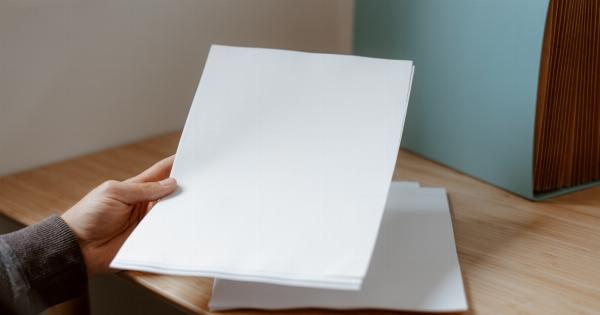When it comes to maintaining a clean and healthy living environment, many people often overlook the importance of washing their bedding regularly. However, failing to do so can have serious consequences for both your health and overall well-being.
In this article, we will explore some of the dangers associated with not washing your bedding on a regular basis.
Potential Health Hazards
1. Accumulation of Dust Mites.
Dust mites are microscopic creatures that thrive in warm and humid environments. When you don’t wash your bedding frequently, these tiny pests can easily take up residence in your sheets, pillowcases, and mattresses.
Dust mites and their waste products can trigger allergies, asthma attacks, and even dermatitis.
2. Increased Risk of Bed Bugs.
Bed bugs are another unwanted and notorious hitchhiker that thrives in dirty bedding. These blood-sucking insects can cause itchy bites and uncomfortable sleep. If left unaddressed, a bed bug infestation can be a nightmare to eliminate.
3. Bacterial and Fungal Growth.
While you sleep, your body naturally sheds dead skin cells and sweat, which can accumulate on your bedding over time. This accumulation creates a breeding ground for bacteria and fungi.
Prolonged exposure to these microorganisms can lead to skin infections, respiratory issues, and other health complications.
4. Allergies and Respiratory Problems.
Dirty bedding can harbor a wide range of allergens, including pollen, pet dander, and dust. Breathing in these allergens throughout the night can trigger allergic reactions and exacerbate respiratory conditions such as asthma and rhinitis.
Potential Skin Issues
1. Acne Breakouts.
When you don’t wash your bedding regularly, the accumulation of oil, dirt, and dead skin cells can clog your pores. This can lead to acne breakouts and worsen existing skin conditions such as acne vulgaris.
2. Irritated and Dry Skin.
Sleeping on dirty sheets and pillowcases can cause skin irritation and dryness. The presence of dust mites and allergens can further aggravate these symptoms, making your skin feel itchy and uncomfortable.
3. Worsening of Existing Skin Conditions.
If you suffer from eczema, psoriasis, or other skin conditions, failing to wash your bedding regularly can exacerbate these conditions. The build-up of irritants on your sheets can cause flare-ups and prolong the healing process.
Poor Sleep Quality
1. Disrupted Sleep.
Lying on a dirty and uncomfortable bed can disrupt your sleep patterns. The presence of allergens and irritants can cause sneezing, coughing, and itching, making it difficult to fall asleep or stay asleep throughout the night.
2. Unpleasant Odors.
Dirty bedding can develop musty odors due to bacterial and fungal growth. These odors can be unpleasant and affect the overall ambiance of your bedroom, making it less soothing and relaxing.
3. Decreased Sleep Efficiency.
When you sleep on bedding that hasn’t been washed for a while, you are more likely to toss and turn, trying to find a comfortable position. This can decrease your sleep efficiency and leave you feeling tired and groggy in the morning.
How Often Should You Wash Your Bedding?
Now that you are aware of the potential dangers associated with not washing your bedding regularly, it’s essential to understand how often you should clean your sheets, pillowcases, and blankets.
1. Sheets.
Experts recommend washing your sheets once a week to remove sweat, oils, dead skin cells, and other impurities. This frequency may need to be increased if you have allergies, are ill, or have a tendency to sweat excessively during sleep.
2. Pillowcases.
Pillowcases should ideally be washed at least once a week, or even more frequently if you have acne-prone skin or oily hair. Changing your pillowcase regularly can help prevent breakouts and maintain hygienic sleeping conditions.
3. Blankets and Comforters.
Blankets and comforters can be washed less frequently, typically every few months, unless they become visibly soiled or come into contact with allergens or contaminants.
Tips for Cleaning Your Bedding
Here are some useful tips to help you effectively clean your bedding:.
1. Follow Care Instructions.
Always check the care instructions provided by the manufacturer for your bedding. Different materials may have specific cleaning requirements or temperature restrictions.
2. Wash with Hot Water.
Washing your bedding with hot water (preferably at a temperature of at least 130°F/54°C) can help eliminate dust mites, bacteria, and allergens effectively.
3. Use Hypoallergenic Detergents.
If you have sensitive skin or allergies, opt for hypoallergenic laundry detergents that are free from fragrances and harsh chemicals.
4. Dry Thoroughly.
Ensure that your bedding is completely dry before using it again. Moisture can lead to the growth of mold and mildew, which can further worsen allergies and respiratory conditions.
Conclusion
Regularly washing your bedding is crucial for maintaining a clean, healthy, and comfortable sleep environment. Failure to do so can lead to various health hazards, skin issues, and poor sleep quality.
By understanding the potential dangers and adopting good hygiene practices, you can ensure a restful night’s sleep and protect your overall well-being.































